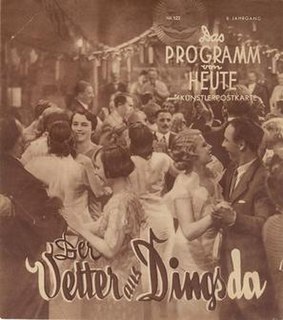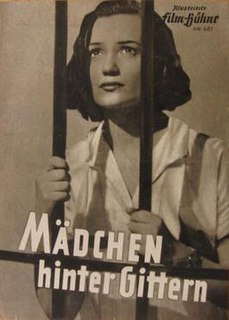
Los Angeles, officially the City of Los Angeles and often known by its initials L.A., is the most populous city in California, the second most populous city in the United States, after New York City, and the third most populous city in North America. With an estimated population of four million, Los Angeles is the cultural, financial, and commercial center of Southern California. The city is known for its Mediterranean climate, ethnic diversity, Hollywood and the entertainment industry, and its sprawling metropolis. Los Angeles is the largest city on the West Coast of North America.

The University of California, Berkeley is a public research university in Berkeley, California. It was founded in 1868 and serves as the flagship institution of the ten research universities affiliated with the University of California system. Berkeley has since grown to instruct over 40,000 students in approximately 350 undergraduate and graduate degree programs covering numerous disciplines.

The California Gold Rush (1848–1855) began on January 24, 1848, when gold was found by James W. Marshall at Sutter's Mill in Coloma, California. The news of gold brought approximately 300,000 people to California from the rest of the United States and abroad. The sudden influx of gold into the money supply reinvigorated the American economy, and the sudden population increase allowed California to go rapidly to statehood, in the Compromise of 1850. The Gold Rush had severe effects on Native Californians and resulted in a precipitous population decline from disease, genocide and starvation. By the time it ended, California had gone from a thinly populated ex-Mexican territory, to having one of its first two U.S. Senators, John C. Frémont, selected to be the first presidential nominee for the new Republican Party, in 1856.
Christian August Gottlob Eberhard was a German miscellaneous writer.

Gotthard Daniel Fritzsche was a Prussian-Australian pastor who becoming instrumental in furthering that religion in South Australia. He was born in Liebenwerda, in the Electorate of Saxony, Germany, and migrated to Australia in 1841. From 1842–1863, he was pastor of the Evangelical Lutheran Church. He died and was buried at Lobethal, South Australia.

Kamala Devi Harris is an American attorney and politician who has served as the junior United States Senator from California since 2017. A member of the Democratic Party, she previously served as the 32nd Attorney General of California from 2011 to 2017, and as the 27th District Attorney of San Francisco from 2004 to 2011. On January 21, 2019, she officially announced her campaign to run for the Democratic nomination for President of the United States in the 2020 United States presidential election.

Katja Hannchen Leni Riemann is a German actress.
Helen Dukas was Albert Einstein's secretary. She also co-authored Albert Einstein: Creator and Rebel and co-edited Albert Einstein: The Human Side with Dr. Banesh Hoffmann. Dukas was one of two trustees chosen by Einstein, according to his Last Will and Testament, to hold the literary rights to all of his manuscripts, copyrights, publication rights, royalties, and royalty agreements. The other trustee was the economist Dr. Otto Nathan. In short, Dukas and Dr. Nathan were the "executors of his literary heritage." They collaborated on the compilation of The Collected Papers of Albert Einstein, using documents that were subsequently donated to the Hebrew University of Jerusalem.

Johann André was a German musician, composer and music publisher of the Classical period. He was born and died in Offenbach am Main.
Schmidt House may refer to:
The Conflagration is a German play written by Gerhart Hauptmann (1862–1946). Like Henrik Ibsen, Hauptmann focuses attention on social issues. Unlike The Weavers (1892) and The Assumption of Hannele (1893), it does not seem to have ever been performed on Broadway; however, it was adapted as a German film in 1962, directed by John Olden and starring Rudolf Platte as Schuhmachermeister Fielitz and Inge Meysel as Frau Fielitz.
Das kleine und das große Glück is an East German film directed by Martin Hellberg. It was released in 1953.
Rhenish Girls and Rhenish Wine is a 1927 German silent film directed by Johannes Guter and starring Xenia Desni, Jack Trevor and Elisabeth Pinajeff. The film's art direction was by Jacek Rotmil.

The Cousin from Nowhere is a 1934 German operetta film directed by Georg Zoch and starring Lien Deyers, Lizzi Holzschuh and Walter von Lennep. It is based on the 1921 operetta The Cousin from Nowhere composed by Eduard Künneke. It was later turned into a 1953 film of the same title.

The Cousin from Nowhere is a 1953 West German operetta film directed by Karl Anton and starring Vera Molnar, Gerhard Riedmann and Grethe Weiser. It is based on the 1921 operetta The Cousin from Nowhere composed by Eduard Künneke.
Henriette Jacoby is a 1918 German silent film directed by Richard Oswald and starring Mechthildis Thein, Conrad Veidt and Leo Connard. It is the sequel to Jettchen Gebert's Story.

Jettchen Gebert's Story is a 1918 German silent film directed by Richard Oswald and starring Mechthildis Thein, Conrad Veidt and Leo Connard.

Girls Behind Bars is a 1949 West German drama film directed by Alfred Braun and starring Petra Peters, Richard Häussler and Edelweiß Malchin.
















